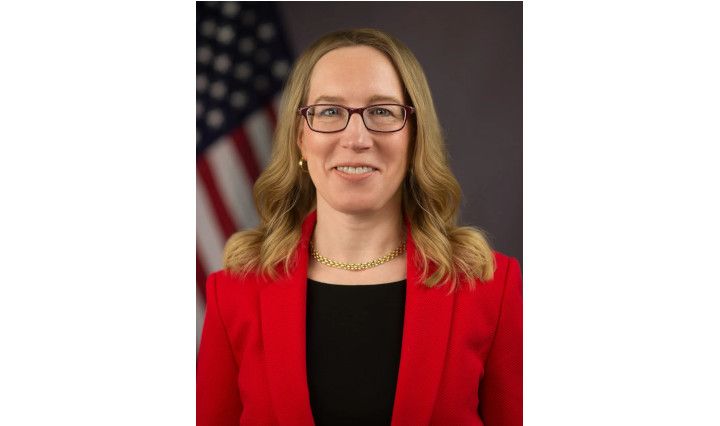Peirce on New Conflicts of Interest Rule: "micromanages clearing agency governance in a way that is likely to divert board attention from key issues by focusing it instead on an amorphous set of stakeholders. Accordingly, I dissent."

Source: https://www.sec.gov/news/statement/peirce-governance-20231116
Clearing agencies play a critical role in our markets. Therefore, sound regulation of clearing agencies should be a priority for the Commission. The approach embodied in the final rule, however, micromanages clearing agency governance in a way that is likely to divert board attention from key issues by focusing it instead on an amorphous set of stakeholders. Accordingly, I dissent.
Properly calibrating clearing agency governance is hard. A number of factors contribute to this challenge, including the unique and critical role that clearing agencies play, the level of market power that some clearing agencies enjoy, the separation of clearing agency ownership and clearing agency membership, the existence of regulatory clearing mandates, and the complex regulatory landscape in which clearing agencies operate. To do their job well, clearing agencies need to seek input from a wide range of interested persons. Rather than working to bolster existing clearing agency processes for soliciting input from relevant market participants, today’s rule micromanages clearing agency boards with a set of inflexible mandates.
This micromanagement occurs in several ways. First, the rule obliges the board of directors to:
establish, implement, maintain, and enforce written policies and procedures reasonably designed to require the board of directors to solicit, consider, and document its consideration of the views of participants and other relevant stakeholders of the registered clearing agency regarding material developments in its risk management and operations on a recurring basis.[1]
Directors have a fiduciary duty to act in the best interest of the clearing agency. As one commenter explained, “the concept of director fiduciary duty . . . is a bedrock principle of corporate governance” and “dictates that directors are fiduciaries of the corporation and as such must act in the best interest of it, including by exercising duties of care and loyalty the corporation.”[2] A requirement that the board formally consider the views of an undefined group of “relevant stakeholders”[3] with respect to material developments in risk management and operations muddies that fiduciary duty. Although the scope of the requirement is narrower than proposed—applicable to “risk management and operations” instead of “governance and operations”—it continues to be ambiguously broad. The term “operations” could cover many topics, which suggests boards will have to consult stakeholders on a whole range of issues.[4]
Second, the rule requires clearing agencies’ nominating committees to take a different set of stakeholders’ interests into account. Specifically, the rule requires clearing agencies’ board nominating committees to institute a process for demonstrating “that the nominating committee considered the views of . . . stakeholders [other than owners, participants, and participants’ customers and clients][5] who may be affected by the decisions of the registered clearing agency, including transfer agents, settlement banks, nostro agents, liquidity providers, technology or other service providers.”[6] Again, the rule seems to be asking the board to look beyond what may be best for the clearing agency.[7] Requiring a board to consider the views of “stakeholders,” whose interests may conflict with those of the clearing agency is problematic. Consider, for example, the need to take account of the view of the clearing agency’s largest incumbent technology provider that the clearing agency should not switch to a cheaper, better provider. Why should a supplier’s preference for retaining the clearing agency as a customer inform the nominating committee? The mandated focus on people affected by the clearing agency’s decisions also will distract the nominating committee from finding the mix of candidates best able to “represent the views of the owners and participants,”[8] another requirement in the final rule.[9]
Third, the rule could hamper the efficacy of board risk management committees by spurring more turnover than is prudent. Although better than the proposed directive to “reconstitute” the risk management committee regularly, the final rule requires annual re-evaluation of the risk management committee’s membership[10] to “prevent stagnation of the [risk management committee] membership.”[11] While having fresh perspectives on the risk committee is a laudable goal, having expert perspectives on the committee is more important.[12] The Commission’s re-evaluation requirement may have the effect of causing more turnover than is conducive to generating the “risk-based, independent, and informed opinion” that the rule requires the risk management committee be able to provide.[13]
The Commission’s increasingly prescriptive approach to clearing agency governance could interfere with the ability of boards to ensure that clearing agencies function safely and efficiently. Neither the rule nor the adopting release makes a serious attempt to reconcile the new requirements with directors’ fiduciary duties.[14]
Even though I have concerns with this rule, I appreciate the meaningful changes incorporated into the final rule to address commenters’ concerns, particularly around service provider relationship management. More generally, I am grateful for the many talented staff across the Commission who devote themselves daily to fostering clearing agency resilience. Whether it is through writing rules like this one, reviewing clearing agency filings, or examining clearing agencies, and, when necessary bringing enforcement actions, the staff’s commitment to the integrity of our markets is evident in their work.
What Hester is mad about:

Fact Sheet:


Press Release:
The Securities and Exchange Commission has adopted new rules to improve the governance of all registered clearing agencies by reducing the likelihood that conflicts of interest may influence their boards of directors or equivalent governing bodies.
“I am pleased to support this adoption because it helps foster more resilient clearinghouses,” said SEC Chair Gary Gensler. “Congress has said that the Commission has an important role relating to clearinghouses. This adoption seeks to enhance standards to achieve several goals: promote board independence, consider the views of relevant stakeholders, and reduce the potential for conflicts of interest with respect to the board and senior management. Taken together, these final rules benefit investors, issuers, and the markets connecting them.”
The new rules establish governance requirements regarding board composition, independent directors, nominating committees, and risk management committees. The rules also require new policies and procedures regarding conflicts of interest, management of risks from relationships with service providers for core services, and a board obligation to consider stakeholder viewpoints. The rules are being adopted pursuant to, among other statutory provisions, Section 765 of the Dodd-Frank Act, which specifically directs the Commission to adopt rules to mitigate conflicts of interest for security-based swap clearing agencies.
The rules improve the governance of registered clearing agencies by identifying certain responsibilities of the board, increasing transparency into board governance, and, more generally, improving the alignment of incentives among owners and participants of a registered clearing agency. In support of these objectives, the rules establish new requirements for board and committee composition, independent directors, management of conflicts of interest, and board oversight.
The adopting release has been published on SEC.gov and will be published in the Federal Register. The compliance date is 12 months after publication in the Federal Register, except for the independence requirements for the board and board committees, for which the compliance date is 24 months after publication in the Federal Register.
Wut Mean?:
The SEC has adopted new rules to enhance the governance of all registered clearing agencies. These rules include:
- Board Governance: Requirements for independent directors and specific compositions for the board of directors, nominating committee, and risk management committee.
- Conflict of Interest: Measures to identify, mitigate, or eliminate conflicts of interest among directors or senior managers, along with mandatory documentation of such actions.
- Reporting Policies: Obligations for directors to report conflicts of interest, underpinned by detailed policies and procedures.
- Risk Management: Policies and procedures for managing risks from relationships with service providers delivering core services.
- Stakeholder Engagement: Procedures for the board to actively seek, consider, and document the opinions of participants and other relevant stakeholders.
These rules aim to reduce the potential for conflicts of interest to influence the board of directors or equivalent governing bodies of registered clearing agencies.
Key requirements of the new rules include:
- Independent Directors: A majority of the board must be independent directors, with clear definitions of independence and circumstances that might disqualify a director from being considered independent.
- Committee Requirements: Establishment of a nominating committee, a written evaluation process for board nominees, and detailed requirements for the composition and operation of these committees.
- Risk Management Committee: Establishment and annual re-evaluation of a risk management committee, with defined roles and purposes.
- Conflict of Interest Policies: Comprehensive policies to address conflicts of interest and ensure timely reporting by directors.
- Service Provider Risk Management: Policies for managing risks associated with service providers crucial for clearance, settlement, or other vital business functions.
- Stakeholder Consideration: Procedures for the board to incorporate the views of stakeholders on significant developments in risk management and operations.

TLDRS:
- SEC Commissioner Hester M. Peirce on New Conflicts of Interest Rule: "micromanages clearing agency governance in a way that is likely to divert board attention from key issues by focusing it instead on an amorphous set of stakeholders. Accordingly, I dissent."
- "The Commission’s increasingly prescriptive approach to clearing agency governance could interfere with the ability of boards to ensure that clearing agencies function safely and efficiently."



